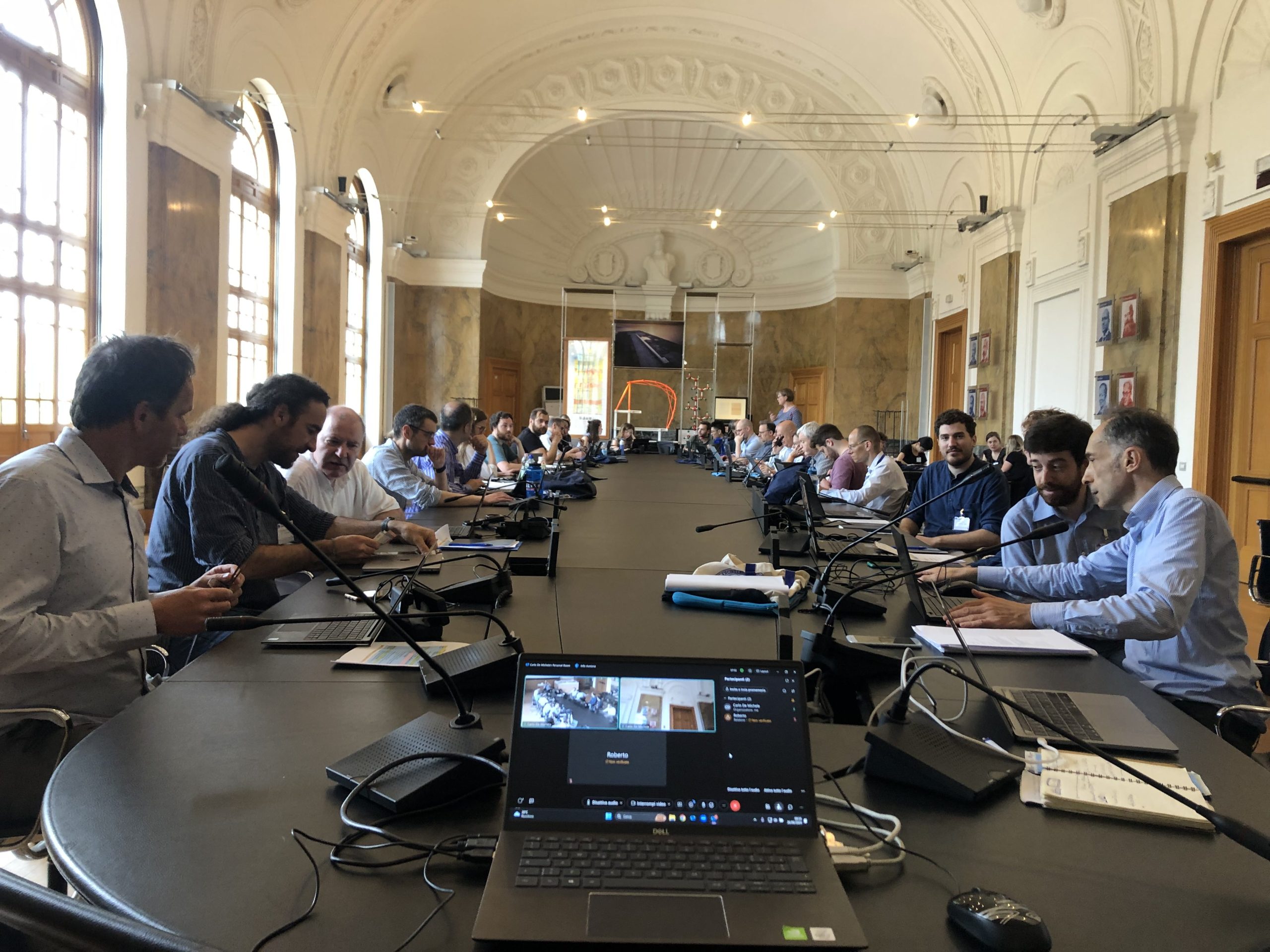The OpenSense Community recently convened in a hybrid format, combining both face-to-face and online interactions, for their second joint annual meeting in Krakow, Poland, from June 27th to 29th, 2023. This productive assembly brought together 59 participants from a diverse array of countries, including Germany, Poland, the UK, Austria, Serbia, the Czech Republic, Romania, Sweden, Belgium, Israel, France, Italy, Norway, Luxembourg, Cyprus, Bulgaria, Turkey, Hungary, the Netherlands, Portugal, Denmark, and more. The event was hosted by the Jagiellonian University in Krakow and organised by the Human and Environmental System Research Centre.
The meeting primarily revolved around the activities of COST Action CA20136: “Opportunistic Precipitation Sensing Network.” The Management Committee (MC) Meeting MC-M4 commenced with a detailed agenda. The opening session covered important topics, including personal introductions of MC members and an overview of the main activities since the last meeting. The subsequent sessions were devoted to discussions on the progress of working groups, grant awarding, and a revision of work and budget plans. The second day was marked by a series of working group meetings, each focusing on specific aspects of opportunistic sensing of rainfall and water vapour, as well as integrating crowd-sourced meteorological data.
The comprehensive agenda included insightful presentations on various subjects. For instance, the utilisation of commercial microwave link (CML) data for precipitation forecasts in Austria was discussed, emphasising the crucial role these data play in regions with meteorological observation challenges. The event also delved into machine learning techniques for high-resolution precipitation mapping from satellite microwave link measurements. Furthermore, the application of global navigation satellite system (GNSS) signals for water vapour sensing and meteorological studies was explored. The meeting covered crowd-sourced meteorological datasets, with an emphasis on the efforts of the European Meteorological Network (EUMETNET) in this domain and the improvement of pan-European radar precipitation estimates through merging with crowdsourced rain gauge data.
The workshop’s success can be attributed to the participation of experts from various countries, fostering collaboration and knowledge exchange within the OpenSense Community. The event provided a platform for in-depth discussions, presentations of cutting-edge research, and the sharing of best practises. As the meeting concluded, the participants left with enriched insights and a renewed commitment to advancing the field of opportunistic precipitation sensing.



